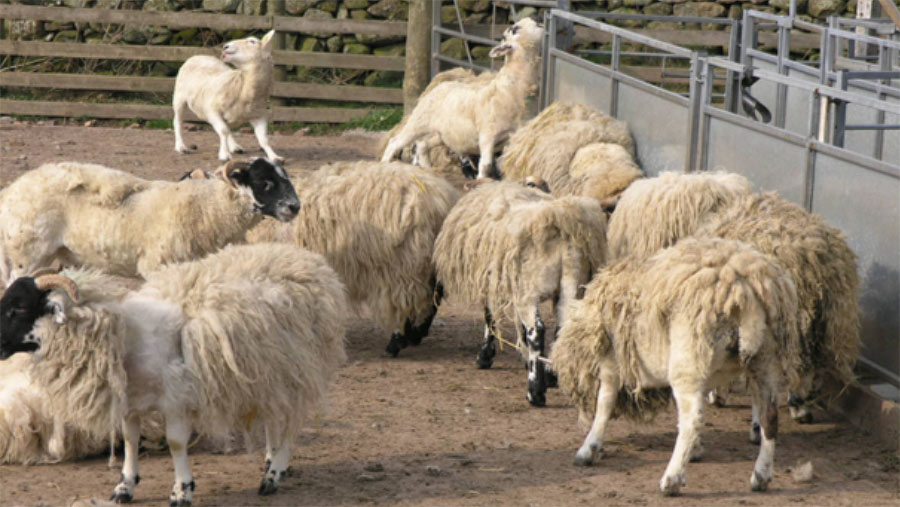Sheep scab project to help hundreds of ‘hotspot’ farms
 © The Royal (Dick) School of Veterinary Studies/University of Edinburgh
© The Royal (Dick) School of Veterinary Studies/University of Edinburgh An ambitious sheep scab initiative, working in known hotspot areas, is set to collaborate with up to 300 flocks this year on disease testing, vet advice and knowledge transfer.
The “Let’s Stop Scab Together” campaign is led by the Moredun Research Institute and will work with farms in three regions of England – Hereford and Shropshire, Devon and Cornwall and Northern England.
The project, which is funded by the European Agricultural Fund for Rural Development as part of the Rural Development Programme for England, aims to:
- Identify clusters of farms and engage with farmers
- Hold meetings to learn from farms about the disease in each cluster
- Conduct farm visits with regional co-ordinators
- Subsidise farm visits from vets for sheep scab blood-testing and then advise farmers about effective biosecurity and disease control
- Follow up treatments and advice as required.
See also: Test breakthrough paves way for sheep scab vaccine
A key step forward in the project will be the large-scale application of the sheep scab Elisa test, which was first commercialised by Biobest Laboratories in 2017.
The cost of the Elisa test and vet visit fees will be covered by the programme.
Each of the three regions will be divided into cluster areas, the number and size of which will be determined by the extent and layout of the identified hotspots.
The National Sheep Association, Adas, and the Farmer Network will administer the project in the South West, Midlands and North, respectively.
Flow of knowledge
“We hope the knowledge transfer flows two ways,” said Moredun’s Stewart Burgess, a leading researcher on the project.
“We will look to learn from farmers as well as teach them about scab, plunge dipping, biosecurity and the importance of testing. We will use this opportunity to benchmark the test on a larger scale than we did on the Isle of Mull in 2015.”
The project is being run with help from Sustainable Control of Parasites in Sheep (Scops) – which put the original proposal to Defra for the sheep scab project – and the University of Bristol.
